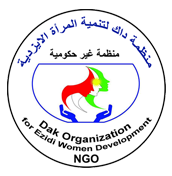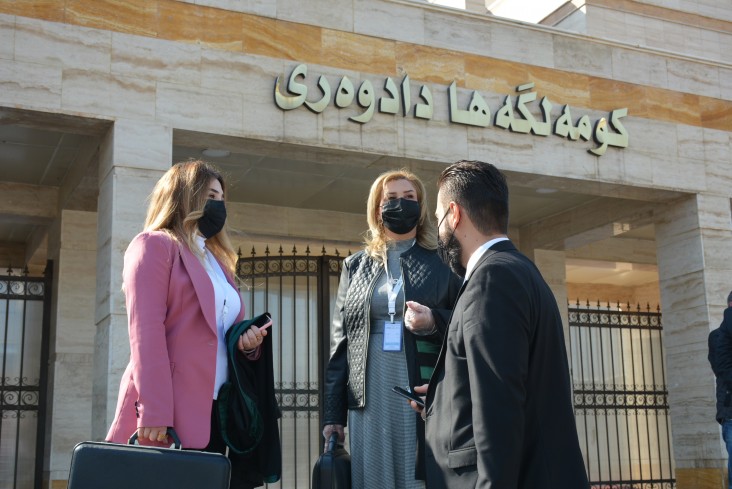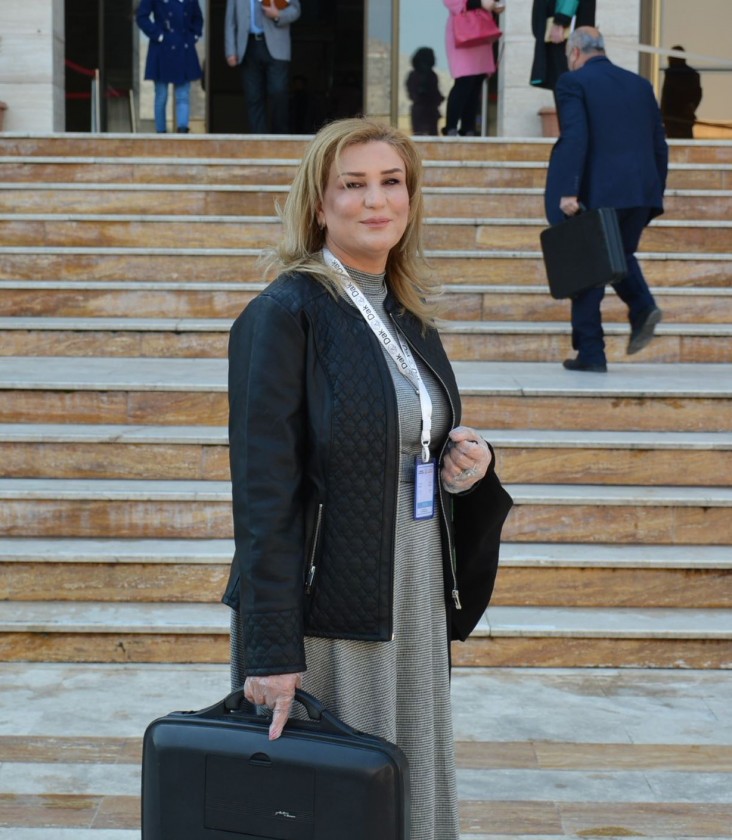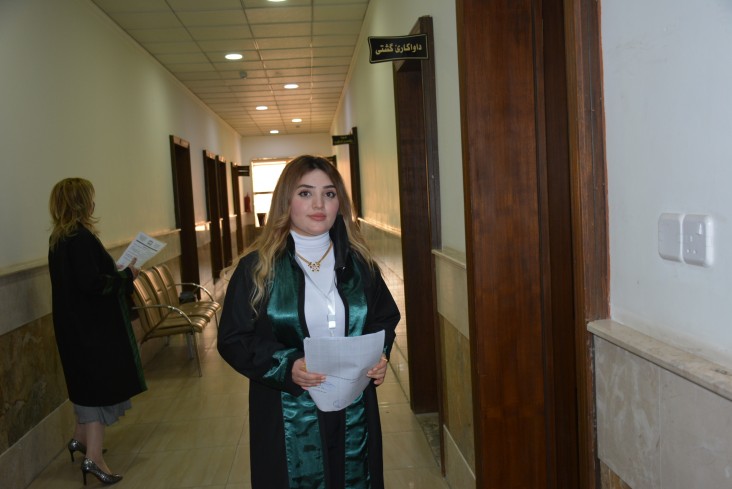Hand in hand towards justice
“…My lawyer was very helpful with me and she was always with me, she was doing everything to support my case. Psychologically I am much better than before. I now can think about my life and my kids’ future.”
It took Faiza* six months from the day she first talked to her lawyer to be sure that she wanted to file for a divorce. Faiza’s father arranged her marriage before she turned 18-years old. Faiza’s husband treated her violently and one day, he never came home, leaving Faiza to care for the children and to address the challenges caused by her son’s lack of identification. Coping with abandonment, her past experiences of abuse, and the complications of getting her son’s ID, Faiza felt trapped and scared for her life.
With her anxiety keeping her up at night, Faiza sought emotional support from Dak Organization for Ezidi women, a Yezidi and woman-led Iraqi NGO supported by USAID through a legal advocacy pilot program. “She was very afraid,” recalled Gulistan, Faiza’s lawyer at Dak Organization, “Her husband told his father to kidnap their children, and he repeatedly threatened her.” Since her husband left, Faiza moved with her children into her parents’ house. Afraid that her father-in-law would come and take her children, Faiza slept with them every night.
Through the USAID-supported pilot program, Gulistan and other lawyers working at Dak Organization learned about a client-centered approach to legal advocacy, which ensures that their clients make informed decisions about their legal cases. Though Gulistan advised Faiza to seek a divorce, she also took the time to explain to Faiza her options, the multiple steps required in each scenario, and supported her client’s final decisions. Considering the information provided by Gulistan, Faiza decided she was not yet ready to pursue a divorce. Instead,they started the process by obtaining her son’s ID, which is a challenging task without the father present. Going through this experience together helped build trust and confidence between Faiza and Gulistan.
With her son’s ID in hand, Faiza gained confidence in herself, her attorney and the legal process, and decided to consider divorce. Filing for divorce as an Iraqi woman is risky and can lead to severe repercussions, including stigma, homelessness, forced marriage, abuse, or even losing custody of one’s children. This was not a decision Faiza took lightly. She worried that her father-in-law would violently retaliate once he heard the news. Gulistan understood Faiza’s hesitation and supported her through the process by providing her with as much information on her different options as possible.
Finally after six months Faiza made up her mind and with her lawyer she filed for divorce. She recalled, “The process of getting divorced was very long and needed a lot of visits to court and government offices, but my lawyer was very helpful with me and she was always with me, she was doing everything to support my case. Psychologically I am much better than before. I now can think about my life and my kids’ future.”
*Though “Faiza” consented to tell her story, her name was changed to protect her safety and privacy.
Source of the story: https://www.usaid.gov/iraq/program-updates/mar-2021-hand-in-hand-towards-justice




